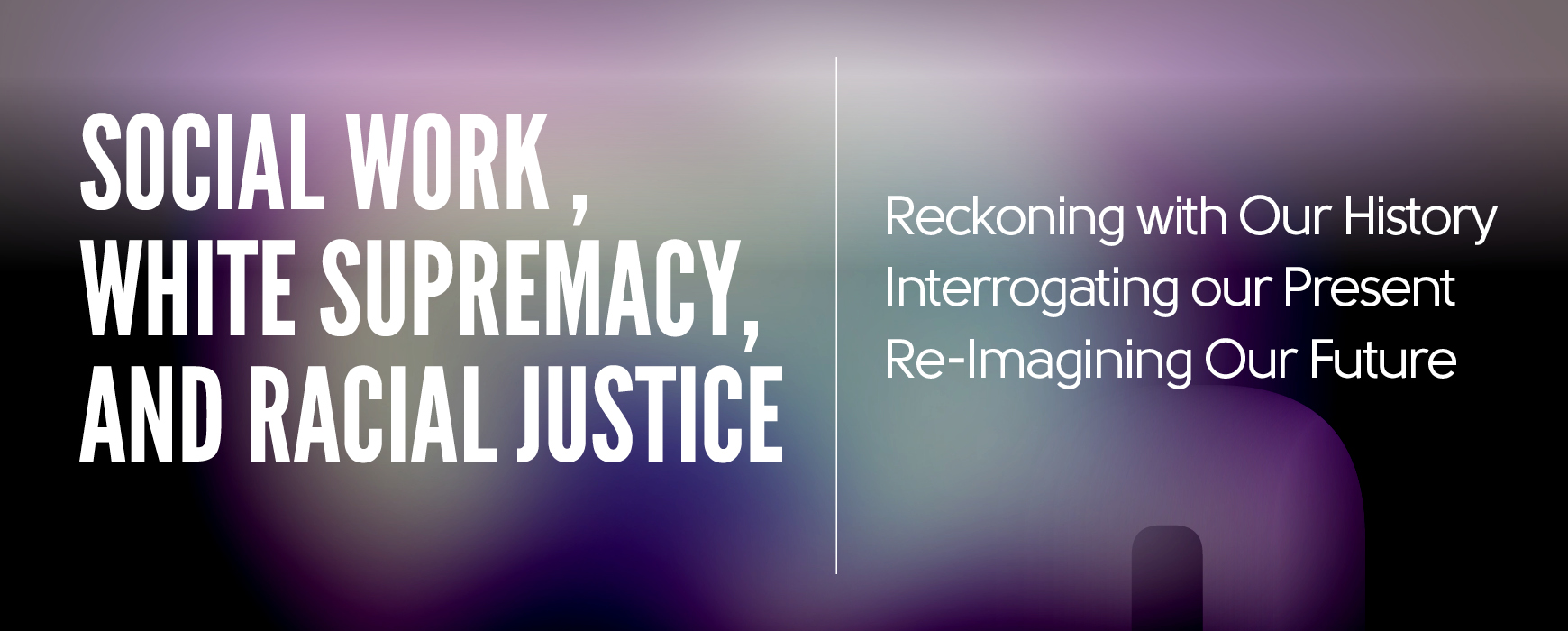Social Work, White Supremacy, and Racial Justice: Reckoning with our History, Interrogating the Present, and Reimagining Our Future

Social Work, White Supremacy, and Racial Justice: Reckoning with Our History, Interrogating our Present, and Re-Imagining Our Future
Due date: September 1, 2020
Social work has a complex history of upholding White supremacy alongside a goal to achieve racial justice. Moreover, our profession simultaneously practices within racist systems and works to dismantle them. In the wake of a fervent #BlackLivesMatter movement and persistent racial disparities in key social welfare institutions, these paradoxes have come to the forefront of discussion in academic and practice circles. This unique moment presents an opportunity to interrogate our profession’s relationship to White supremacy and racial justice in order to reimagine an anti-racist future.
As such, this is a call for abstracts for a series of virtual symposia that will address these themes. It is our intention that papers based on symposia presentations will be published in an edited volume. Reprints of papers will not be accepted. We intend to situate this volume as a seminal collection of papers in three areas, described below.
Part 1: Our Historical Legacy of Racism and White Supremacy
(November, 2020)
Here we seek papers, preferably using primary sources (such as case notes, document review, or agency notes) that trace social workers’ constructions of race, racial ideologies, and beliefs. These historical accounts might be in areas of juvenile and criminal justice, child welfare, health, mental health, aging, education, employment programs, or other areas of practice. They might also look at racist histories of institutions (i.e., organizational structures), people (i.e., biographies), or individual practice (i.e., using case notes).
Part 2: Reflections on Past and Present: Addressing Racism from Within (February, 2021)
In this section, we seek papers that provide accounts of how the profession has evolved to begin to confront racism: What have social workers, leaders, and scholars done to challenge the dominant paradigm? From the advent of the National Association of Black Social Workers to innovations in practice, policy, and social work education, there are numerous leaders and discourses that have challenged racism and moved the profession forward. These papers can be constructed from first person narratives or research on an organization, social movement, practice, or trend in the profession.
Part 3: Envisioning an Anti-Racist Future (April, 2021)
In the final segment, we seek papers on emerging movements in social work that are working to dismantle racism and White supremacy. These papers can be from the lens of education, abolition, technology, leadership, or others. Here we are looking for forward thinking papers; if anti-racism is a goal, how do we get there? What will this look like for social work education and/or practice? Will we work ourselves out of a profession? Papers that use empirical, narrative, theory, and/or other approaches are encouraged.
We encourage PhD students and emerging scholars to submit to this innovative volume. Once accepted, authors will be required to present their paper on a virtual symposium (final dates TBD) and submit their completed paper by June 1, 2021. An honorarium will be provided for each presenter.
To Submit:
Please submit your name(s), email address(es), phone number(s) and institutional affiliation(s) along with a 400 (max) word abstract describing the goals of your contribution and your source materials. Please also specify where you think your paper will fit (Parts 1, 2, or 3). E-mail your info and abstract as an MSWORD document to socworksymposium@uh.edu by September 1, 2020 (please note late abstracts will not be reviewed). Please title your email “symposium submission” in the subject line. Authors will be notified of acceptance mid-September.
For more information please contact:
Laura Abrams, UCLA Luskin School of Public Affairs
Sandra Crewe, Howard University School of Social Work
Alan Dettlaff, University of Houston Graduate College of Social Work
James Herbert Williams, Arizona State University School of Social Work
Sponsored by:
UCLA Luskin School of Public Affairs
Howard University School of Social Work